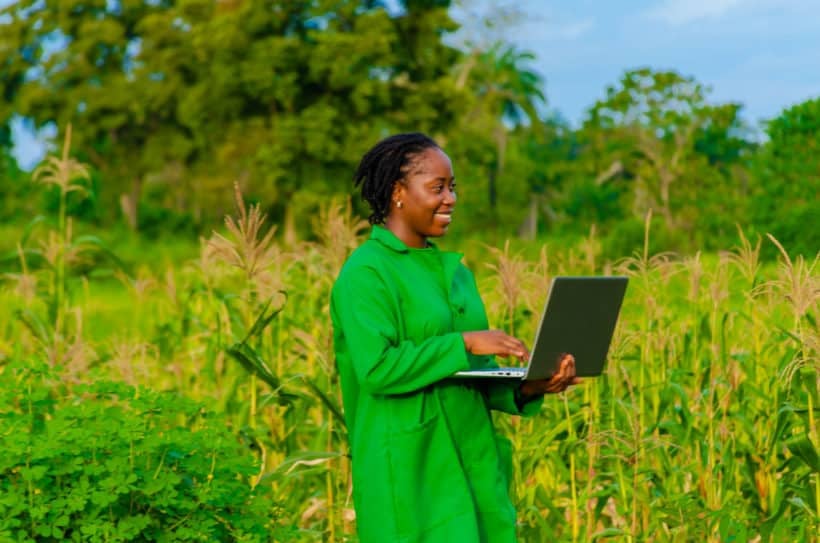
There is more than enough evidence that gender inequality has far-reaching ramifications for various sectors, with the toll heavily borne by women, limiting their potential to be agents of change. Tackling the inequalities facing women is not only a moral imperative; it just makes economic sense. If women had equal access to and decision-making power over productive resources, income-generating activities, education, and services, there would be direct positive impacts on the income, food security, and nutritional status of their households and, ultimately, society as a whole.
Urgent change is needed, and there is evidence that real change is possible. Recent findings suggest that system-level policy innovations to entrench women’s empowerment and gender equality in agrifood systems are underway across Africa, as revealed in a recent report by the Malabo Montpellier Panel of agriculture experts.
The report, BRIDGING THE GAP: Policy Innovations to Put Women at the Center of Food Systems Transformation in Africa, demonstrates that agrifood systems that are purposefully designed to work equally for women as for men have the potential to contribute to more equitable, resilient, and healthier societies.
The research focused on four systematically selected African countries – Ethiopia, Ghana, Rwanda, and Togo, proposing an action agenda with crucial areas for policy intervention and scaling across the continent.
Several African countries have, in recent years, taken great strides in building greater access to agricultural services – including finance, extension, and more – which support more gender-equal agri-food systems.
Science and technology offer concrete avenues for women’s empowerment, with wide-ranging benefits and relevance for their participation in Africa’s agrifood systems. While the number of female graduates with core science, technology, engineering, and math (STEM) degrees in Africa is steadily growing and stands at 47 percent in 2023, women remain underrepresented in STEM careers. Science-driven education and information offer women opportunities to adopt and adapt new production technologies and methods, diversify assets and activities, and increase productivity and income. Technical training must go hand-in-hand with mentorship and targeted leadership to build a sustainable pipeline of female scientists at all levels of the agrifood value chain.
Another crucial area of intervention is Agricultural extension services to enhance productivity levels and incomes. Evidence suggests that having a greater share of women extension agents will facilitate food system transformation. For instance, the Ethiopian Network for Gender Equality in Agriculture (ENGEA), established by the Ethiopian Ministry of Agriculture and Natural Resources (MoANRs) in 2015, delivers interventions to ensure equal access to extension services through decentralization initiatives, bringing such services – which are vital in boosting farmer production and resilience – closer to farming households and traditionally marginalized groups, such as women, nationwide.
In the area of Finance, an incontrovertible sector with far-reaching impact on women’s involvement in Africa’s agrifood systems, several African governments are committing more funding to support women’s access to agricultural tools, technologies, and finance. For instance, Ghana’s agricultural investment package has committed more than $11 million to subsidize agricultural technologies for women. Meanwhile, Togo has committed to legislative reform guaranteeing women’s access to land ownership while abolishing taxes that hinder women’s entrepreneurship.
Political empowerment must be a key priority area for African countries. For example, Rwanda leads not only the African continent, but the whole world, in ensuring female representation in political participation and leadership. The Rwandan National Women’s Council, which oversees the election of Women’s Committees from village to national levels, plays a key role in ensuring women from rural areas are included in policy and decision-making – a vital prerequisite to gender equal food systems.
Filling the consumption gap to guarantee gender equality in nutrition is vital, not only for promoting a better standard of health for the entire population, but also for driving economic growth. African countries are now making progress on delivering gender equality in nutrition through greater investment and policy attention. Rwanda’s Village Nutrition Schools (VNS), for example, are an innovative approach to promoting mothers’ and children’s health through education and providing them with important nutritional information. Currently, more than 1,800 village nutrition schools operate across the country, helping more than 6,600 children recover from acute levels of malnutrition.
As shown by these four countries, policy innovations and interventions that are proven to boost gender equality in agri-food systems are sorely needed. These measures are achievable and can be accelerated by embracing some of the policy lessons presented in the Malabo Montpellier Panel’s report.
As Africa undertakes the pivotal task of defining its post-Malabo agenda, it is time to redouble efforts and level the playing field to mainstream women’s empowerment and ensure that future food systems work for them.

